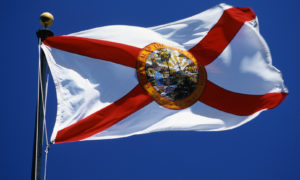June produced two pieces of interesting news on marijuana banking. First, the FinCEN issued its newest Marijuana Banking Update. This update provides information regarding the number of banks and credit unions that are providing services to marijuana businesses and are complying with their Bank Secrecy Act compliance obligations and reporting those services to FinCEN. If a financial institution has a customer that is a marijuana related business, that financial institution is supposed to file a suspicious activity report (SAR) quarterly with FinCEN. These reports are generally used for banks to report potential illegal activity. Given that all marijuana businesses are illegal at the federal level, FinCEN still requires the reports, but it doesn’t force banks or credit unions to shut the accounts down as long as the customer does not violate federal marijuana enforcement priorities.
The data from the report shows that at the end of March 2017, nearly 300 banks and around 50 credit unions were providing banking services to marijuana related businesses. That will seem like a really large number to industry participants that continue to struggle to find banking solutions in most jurisdictions. In Washington, there are 5-10 financial institutions that openly provide banking services to marijuana businesses, close to the same number in Colorado, and far fewer than that in Oregon and California.
So, where does the big number come from? The two main culprits are financial institutions that provide services to ancillary businesses and still file reports, and financial institutions providing services without being public about it. On the first point, many institutions do not feel comfortable providing deposit services to a marijuana cultivator or retailers, but they do feel comfortable providing such services to a marijuana business’s landlord, or to a staffing company or consulting company that works with cannabis businesses. Determining whether FinCEN would consider a business to be a “marijuana related business” is not an exact science, and many financial institutions take a broad view of that term.
The numbers also get inflated by financial institutions that don’t want to market themselves as marijuana businesses but are willing to take on a small number of them for purposes of customer retention. Banking is a business like any other, and many cannabis entrepreneurs have other business interests. If a really good banking customer wants to start a marijuana company, financial institutions are often willing to make an exception to their general policy.
But regardless of whether the number is a little inflated, the fact it is so high is really good news for financial institutions that are in the industry or are considering moving into it. There are still legal risks involved for financial institutions that work with marijuana businesses. Their only protection from regulatory and criminal enforcement are enforcement memoranda issued by the Department of Justice and FinCEN, and the DOJ memos don’t carry legal weight. The more that authorities perceive that bank and credit union industry participants are widespread, the more carefully they will step regarding enforcement action. It’s easy to make an example of an outlier business — it’s harder to do when the business is one of several hundred.
In other news, Fourth Corner Credit Union got a mixed result in its appeal to the 10th Circuit Court of Appeals. We have been following this case for a while because of its potential impacts on access to banking for cannabis businesses. The basics of the case are that Fourth Corner received a state charter from Colorado to operate as a credit union and its business plan clearly included the provision of banking services to marijuana businesses. Two federal agencies, the NCUA and the Federal Reserve, refused to work with Fourth Corner, denying it deposit insurance and a master account respectively. This appeal specifically relates to Fourth Corner’s attempt to get a master account from the Federal Reserve. In an interesting legal decision, the three judge appellate panel had three different approaches to resolving the case, and each one wrote separate concurring opinions.
The downside for Fourth Corner is that none of the judges indicated any sympathy for the original argument that the Federal Reserve had the obligation to provide a master account to Fourth Corner because it had received a state charter. The judges all seem to agree that the Federal Reserve has discretion there even with the state charter in place. The good news for Fourth Corner is that the judges vacated the original order of dismissal “with prejudice” and instead mandated that the trial court dismiss the case without prejudice. Over the course of litigation, Fourth Corner sought to amend its proposed business model set forth in the complaint. It decided to argue that it would only provide services to marijuana businesses if they were legal. Based on this opinion, they can now reapply for the master account with that caveat, and if the federal reserve denies them again, Fourth Corner would have a stronger case. So, that’s good news if you are Fourth Corner and want to open and provide banking services at all, but it doesn’t help marijuana businesses.
Still, this isn’t a ground-shaking decision for the industry as a whole. The Federal Reserve and the NCUA are not punishing existing banks and credit unions that work with marijuana businesses, especially those that are not over-exposed to the cannabis industry. So though it will be extremely challenging to open a new master account for any new chartered institution that wants to work with marijuana businesses, it isn’t at the moment as much of a concern for existing institutions with existing master accounts and insurance policies. As we have said thousands of times, however, the status quo on cannabis banking is barely workable, and everybody’s lives will be easier when Congress acts to clarify that banking marijuana businesses is entirely legal.
Link – Canna Law Blog





































